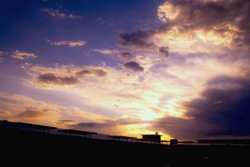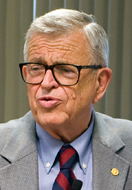by Jordan Ballor –
In the parable of the sheep and the goats (Matt. 25:31–46), Jesus differentiates between those who have done good to others and those who have not. The king, taking the place of Christ in the parable, says that “whatever you did for one of the least of these brothers of mine, you did for me.” Whatever good was done was counted as being done to the king, and whatever bad was done was counted the same way. And on this basis the king separates the righteous sheep and the unrighteous goats. The goats “go away to eternal punishment, but the righteous to eternal life.” It is natural to think that the good the sheep do to others (“I was hungry and you gave me something to eat, I was thirsty and you gave me something to drink…”) refers to special acts of kindness, things that are only done occasionally and usually within a charitable context.
Lester DeKoster, in his book Work: The Meaning of Your Life—A Christian Perspective, provides a refreshing understanding of this parable. He writes that the good Jesus refers to includes these special acts of charity, but also refers to the service we do every day within the context of work. [Read more…]





 by Fr. Daniel Daly –
by Fr. Daniel Daly –